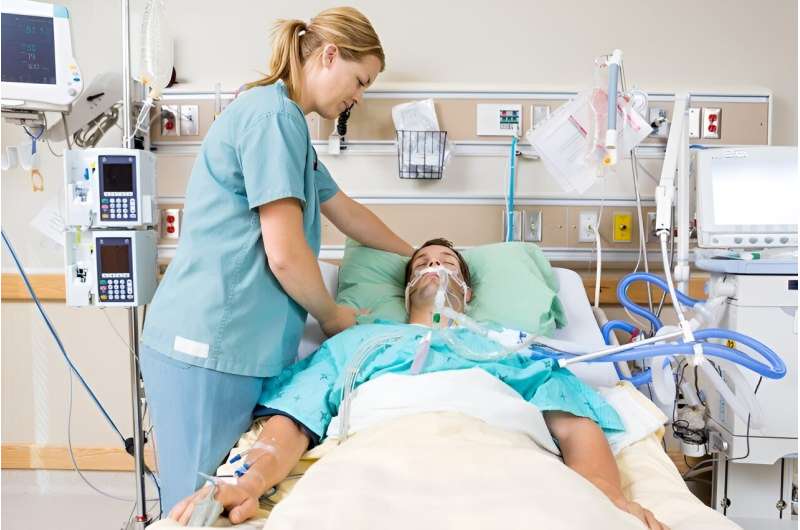This article has been reviewed according to Science X's editorial process and policies. Editors have highlighted the following attributes while ensuring the content's credibility:
fact-checked
peer-reviewed publication
reputable news agency
proofread
Inhaled amikacin reduces ventilatory-associated pneumonia

For critically ill patients undergoing mechanical ventilation for at least three days, a three-day course of inhaled amikacin reduces the subsequent burden of ventilatory-associated pneumonia, according to a study published online Oct. 25 in the New England Journal of Medicine. The study was published to coincide with the annual congress of the European Society of Intensive Care Medicine, held from Oct. 21 to 25 in Milan.
Stephan Ehrmann, M.D., Ph.D., from the Centre Hospitalier Régional Universitaire de Tours in France, and colleagues conducted a multicenter superiority trial involving critically ill adults who had been undergoing invasive mechanical ventilation for at least 72 hours to receive inhaled amikacin once daily or placebo for three days (417 and 430 patients, respectively). Overall, 337 and 355 patients (81 and 82 percent) received all three daily nebulizations in the amikacin and placebo groups, respectively.
The researchers found that ventilator-associated pneumonia developed at day 28 in 15 percent of patients in the amikacin group and 22 percent in the placebo group (difference in restricted mean survival time to ventilator-associated pneumonia, 1.5 days). In 18 and 26 percent of the patients in the amikacin and placebo groups, respectively, an infection-related ventilator-associated complication occurred (hazard ratio, 0.66). Overall, 1.7 percent of patients in the amikacin group and 0.9 percent in the placebo group had trial-related serious adverse effects.
"In this large multicenter trial, a three-day course of amikacin reduced the burden of ventilator-associated pneumonia by day 28 as compared with placebo," the authors write. "Results were consistent with regard to ventilator-associated events."
Several authors disclosed ties to industry.
More information: Stephan Ehrmann et al, Inhaled Amikacin to Prevent Ventilator-Associated Pneumonia, New England Journal of Medicine (2023). DOI: 10.1056/NEJMoa2310307
Copyright © 2023 HealthDay. All rights reserved.





















